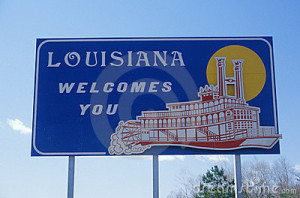 Does a limitation of liability provision include gross negligence claims? This basic question of contract drafting finds surprisingly little answer in Texas authority. A recent article by LTPC attorneys David Coale and Mallory Biblo summarizes the opinions and where the Dallas Court of Appeals falls.
Does a limitation of liability provision include gross negligence claims? This basic question of contract drafting finds surprisingly little answer in Texas authority. A recent article by LTPC attorneys David Coale and Mallory Biblo summarizes the opinions and where the Dallas Court of Appeals falls.
Author Archives: David Coale
 Not too early . . . Gast v. Tinsley, No. 05-15-00498-CV (Nov. 24, 2015, mem. op.) (unresolved claims remained in the trial court against other defendants)
Not too early . . . Gast v. Tinsley, No. 05-15-00498-CV (Nov. 24, 2015, mem. op.) (unresolved claims remained in the trial court against other defendants)
Not too late . . . In re: S.A.W., No. 05-15-00876-CV (Nov. 25, 2015, mem. op.) (notice untimely after nunc pro tunc order revised judgment to a significantly earlier date)
It’s worth remembering the shorthand that the Dallas Court uses, in its short memorandum opinions denying mandamus relief, to describe the requirements for the writ: “Ordinarily, to obtain mandamus relief, a relator must show both that the trial court has clearly abused its discretion and that relator has no adequate appellate remedy. In re: Prudential Ins. Co., 148 S.W.3d 124, 135–36 (Tex. 2004) (orig. proceeding). Having carefully reviewed the petition and record in support of the petition, we conclude relator has failed to establish a right to relief.” E.g., In re Duncan, No. 05-15-01318-CV (Nov. 23, 2015, mem. op.) While this succinct phrase is not controversial, it is worth noting that Prudential is still the “go-to” cite, and the basic two-factor test still the standard reference, despite the more exotic formulations of the Texas mandamus standards by other cases and commentators in the decade-plus since Prudential.
 Property located in Louisiana was foreclosed upon in Orleans Parish. Subsequent litigation in Texas about the appropriate credit for that sale was not filed in the right place, waiving that issue: “[Texas Property Code] Section 51.004 . . . provides that any person obligated on the debt, including a guarantor, may bring an action in the district court in the county in which the real property is located for a determination of the fair market value of the real property as of the date of the foreclosure sale.” State Bank v. Granbury Hospitality, No. 05-14-01306-CV (Nov. 20, 2015, mem. op.) (emphasis added).
Property located in Louisiana was foreclosed upon in Orleans Parish. Subsequent litigation in Texas about the appropriate credit for that sale was not filed in the right place, waiving that issue: “[Texas Property Code] Section 51.004 . . . provides that any person obligated on the debt, including a guarantor, may bring an action in the district court in the county in which the real property is located for a determination of the fair market value of the real property as of the date of the foreclosure sale.” State Bank v. Granbury Hospitality, No. 05-14-01306-CV (Nov. 20, 2015, mem. op.) (emphasis added).
 Zive, the president of a partner in a real estate development venture, sought to testify about the value of the relevant property at various times, in the context of a dispute about the value received at a foreclosure sale. The Court affirmed his exclusion, reminding that while “an owner is qualified to testify to property value,” the testimony must “meet the same requirements as any other opinion evidence.” (quoting Natural Gas Pipeline Co. of America v. Justiss, 397 S.W.3d 150, 156, 159 (Tex. 2012)). Here, although Zive relied upon an appraiser’s report, Zive “provided no substantiation for his opinion that the fair market value of the property would have increased by approximately $2 million by the 2011 foreclosure sale date,” and thus did not meet the standard. Grapevine Diamond v. City Bank, No. 05-14-00260-CV (Nov. 10, 2015, mem. op.)
Zive, the president of a partner in a real estate development venture, sought to testify about the value of the relevant property at various times, in the context of a dispute about the value received at a foreclosure sale. The Court affirmed his exclusion, reminding that while “an owner is qualified to testify to property value,” the testimony must “meet the same requirements as any other opinion evidence.” (quoting Natural Gas Pipeline Co. of America v. Justiss, 397 S.W.3d 150, 156, 159 (Tex. 2012)). Here, although Zive relied upon an appraiser’s report, Zive “provided no substantiation for his opinion that the fair market value of the property would have increased by approximately $2 million by the 2011 foreclosure sale date,” and thus did not meet the standard. Grapevine Diamond v. City Bank, No. 05-14-00260-CV (Nov. 10, 2015, mem. op.)
While outside the usual coverage of this blog, the high-profile products liability case of Johnson & Johnson v. Batiste provides a powerful illustration of “no evidence” review. The plaintiff alleged personal injuries from defective vaginal mesh, the jury found for her, and the Dallas Court reversed:
“It is undisputed the implantation of a [product] for the treatment of [urinary incontinence] can cause a number of complications, including erosion of the mesh into the vagina and urethral, pelvic, and groin pain. It is also undisputed that Batiste suffered from these complications. However, ‘[t]he law of products liability does not guarantee that a product will be risk free.’ Rather, to recover on her product liability claim based on an alleged design defect in the [product], Batiste was required to prove a specific defect in the [product], and not simply the device itself, was the producing cause of her injuries. . . . Although Batiste alleged the [product] was defective based on its use of mechanically cut, heavyweight, small-pore mesh that was subject to degradation and particle loss, she failed to produce more than a scintilla of evidence that any of these alleged defects caused her injuries. Accordingly, the evidence is legally insufficient to support the jury’s verdict.”
No. 05-14-00864-CV (Nov. 5, 2015, mem. op.) (citations omitted). Coverage of the case has recently appeared in the Dallas Observer and Dallas Morning News.
Pinkus, visiting Dallas on business, suffered fatal injuries in a car accident while driving to dinner with his son. The Fifth Court affirmed summary judgment for his employer’s workers compensation carrier, finding (1) that the “continuous coverage” doctrine did not apply when his trip “merely placed him in a position to take advantage of an opportunity for a ‘distinct departure’ on a ‘personal errand,'” and (2) for the same reasons, the “dual purpose travel” doctrine did not apply either. A concurrence would have analyzed the dual-purpose doctrine differently, but reached the same result. Pinkus v. Hartford Casualty, No. 05-14-00892-CV (Nov. 5, 2015).
The trial court granted summary judgment for approximately $30,000 in unpaid invoices under an “account stated” theory, as well as roughly $15,000 in attorneys fees. Pegasus Transportation Group v. CSX Transportation, No. 05-12-00465-CV (August 14, 2013, mem. op.) The Court of Appeals affirmed, reminding that “account stated” can allow recovery without an express contract when the parties have “a standard course of dealing . . . after the expiration of that written agreement.” The Court also gave no weight to a controverting affidavit on attorneys fees, noting that it “does not address what was described by [plaintiff’s] lawyer as the work that was done, what is customarily charged in similar cases, why the time expended was excessive to accomplish the work provided, or that the work performed was unnecessary.” (citing Cammack the Cook, LLC v. Eastburn, 296 S.W.3d 884, 895 (Tex. App.–Texarkana 2009, pet. denied)).
Liability for foundation damage under a multi-year series of CGL policies was at issue in Mid-Continent Casualty Co. v. Castagna, No.05-12-00383-CV (Aug. 20, 2013). Among other holdings, the Court concluded that one policy, which named “McClure Brothers Custom Homes, LLC,” did not extend to an entity of which it was a general partner, “McClure Brothers Homes LP,” because of an exclusion “with respect to the conduct of any current or past partnership . . . or limited liability company” not expressly named. While that policy did reach members and managers of the LLC, no summary judgment evidence made that connection as to this party. The Court also found that a breach of the implied warranty of good workmanship, despite its relationship to the parties’ construction contracts, did not go so far as to trigger the “contractual liability” exclusion under Gilbert Texas Construction, LP v. Underwriters at Lloyds, 327 S.W.3d 118 (Tex. 2010).
The court has issued some interesting comments in connection with the denial of a motion for rehearing in a condemnation case. In the jury charge conference, Dallas County objected to the property owner’s proposed definition of “Cost to Cure,” but the specific basis of the objection was unclear. The trial judge eventually summarized the objection as being that the instruction amounted to a comment on the weight of the evidence, and the County agreed. The trial judge fixed that problem by modifying the instruction to award cost to cure damages, “if any.” On appeal, the County attempted to argue that the definition was actually “an incorrect statement of Texas law,” but the court of appeals rejected that claim:
A party objecting to the jury charge must “point out distinctly the objectionable matter and the grounds of the objection.” Tex. R. Civ. P. 274. When the complaining party’s objection is, “in the opinion of the appellate court, obscured or concealed by voluminous unfounded objections, minute differentiations or numerous unnecessary requests, such objection or request shall be untenable.” Id.
Reviewing the reporter’s record of the charge conference, we cannot determine the County’s exact complaint to the trial court concerning “cost to cure” except that it constituted a comment on the weight of the evidence. The trial court addressed that complaint by modifying the statement of the definition.
The court also rejected the County’s argument that the property owner’s expert had offered conclusory opinion testimony, since the County had failed to raise an issue as to the legal sufficiency of the testimony. In its appellate briefing, the County had challenged the trial court’s admission of the expert testimony as being an abuse of discretion, but did not attack the legal sufficiency of the testimony. For that reason, the court declined to evaluate whether the testimony was conclusory, and therefore denied the County’s motion for rehearing.
Dallas County, Texas v. Crestview Corners Car Wash, No. 05-09-00623-CV
The court also issued a memorandum opinion in another governmental immunity case. In this instance, the court of appeals affirmed the trial court’s denial of a plea to the jurisdiction, concluding that the plaintiff had properly alleged a waiver of sovereign immunity based on the government body’s use or condition of tangible personal property – namely, the 4×8-foot, improperly secured whiteboard that had fallen on the plaintiff’s head.
Dallas Metrocare Services v. Juarez, No. 05-11-01144-CV
In a governmental immunity case, the court has sustained a plea to the jurisdiction asserted by the City of Dallas in response to a slip-and-fall case. The plaintiff alleged she had fallen while trying to open a locked door that had a puddle of fallen rainwater in front of it. The City filed an interlocutory appeal after the trial court denied its plea to the jurisdiction. The court of appeals reversed and rendered judgment dismissing the plaintiff’s claims, concluding that (1) the plaintiff had failed to raise a fact issue showing the City had knowledge of the allegedly dangerous condition, and (2) a plaintiff injured by a premises defect on governmental property can only assert a premises defect claim under the Texas Tort Claims Act, not a claim for general negligence. Without an express waiver of governmental immunity under the TTCA, the court dismissed the case for lack of subject matter jurisdiction.
City of Dallas v. Prado, No. 05-11-01598-CV